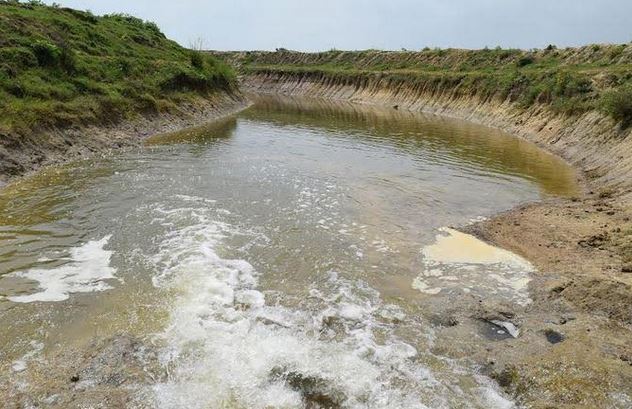News Flash
News Flash

By Md Aynal Haque
RAJSHAHI, April 2, 2025 (BSS) - Integrated water resource management can be the crucial means of meeting up the gradually increasing demand for water in the Rajshahi region, particularly the drought-prone Barind tract.
Quoting his research findings Prof Chowdhury Sarwar Jahan said the rate of aquifer depletion to be "critical" in most areas of high barind lands due to various natural and manmade reasons.
He said the groundwater levels at some areas of Godagari and Tanore upazilas in Rajshahi are decreasing every year, which indicates that the aquifers are under pressure.
The groundwater level at Kolma, Mundumala, Deopara and Kakonhat areas in the two upazilas have reached near the aquifer, which is alarming.
Talking to BSS here on Tuesday, Prof Sarwar Chowdhury, who teaches at the department of Geology and Mining at Rajshahi University, identically mentioned that absence of an aquifer at even 445 metres below the surface.
The groundwater depletion is affecting the region's ecology. "Other than the surface water, there's no other choice left in Barind," he added.
So, there is an urgent need of a complete water management system in the water-stressed Barind region and an increase in use of surface water to reduce pressure on ground water.
As a whole, he opined that sustainable water resource management in the region requires a holistic approach, focusing on efficient water supply, demand management and the conservation of surface and groundwater resources, while also considering the ecological, social, and economic needs of the region.
Besides, geospatial approach for developing an integrated water resource management plan in Rajshahi needs to be adopted
Disseminating his expertise Prof Mijanur Rahman of the Department of Geography and Environmental Sciences in Rajshahi University said the adverse impact of climate change at alarming rates has severely affected every sector, including agriculture and its diversity, creating a real threat to food production and public health.
He underlined the need for re-excavation of more derelict water bodies like canals, ponds and wetlands for the conservation of surface water to maintain ecological balance in the region.
Legitimate rights of the farmers and others concerned should be protected rightly for the sake of encouraging them towards boosting agricultural productions to meet up its gradually mounting demands.
Referring to the enormous contribution of farmers to the country's agricultural development, Prof Rahman said the farmers deserve the rights of getting all requisite privileges. There is no alternative to protect their interests as a whole, he added.
Utmost emphasis should be given on proper water management like reducing water use and minimizing its pollution, reuse or recycle of used water, recycle or recharge of underground water and restore or restoration of declining water layer and water reservoir from degradation.
Prof Mijanur Rahman said there is no way but to promote the integrated water resource management method as special initiatives in the drought-affected area for reducing its existing water-stressed condition.
To this end, there is an urgent need for creating awareness and organizing local communities related to water problems and prospects.
Time has come to involve local government institutions and boosting their capacity in water resource management and to build an effective coordination platform through proper application and practicing of water laws related rules and regulations.
Prof Niamul Bari of the department of Civil Engineering at Rajshahi University of Engineering and Technology said large numbers of water bodies have become derelict due to the adverse impacts of climate change, posing a serious threat to the ecosystem and livelihood condition of the people.
He opined that substantial and sustainable conservation of surface water resources along with its careful use can be the effective means of sustainable water management in the region.
Prof Bari told BSS that an integrated water resource management system will contribute to the development of effective strategies for conserving existing water bodies and ensuring ecological and environmental sustainability by increasing plant biodiversity and mitigating the effects of heat waves.